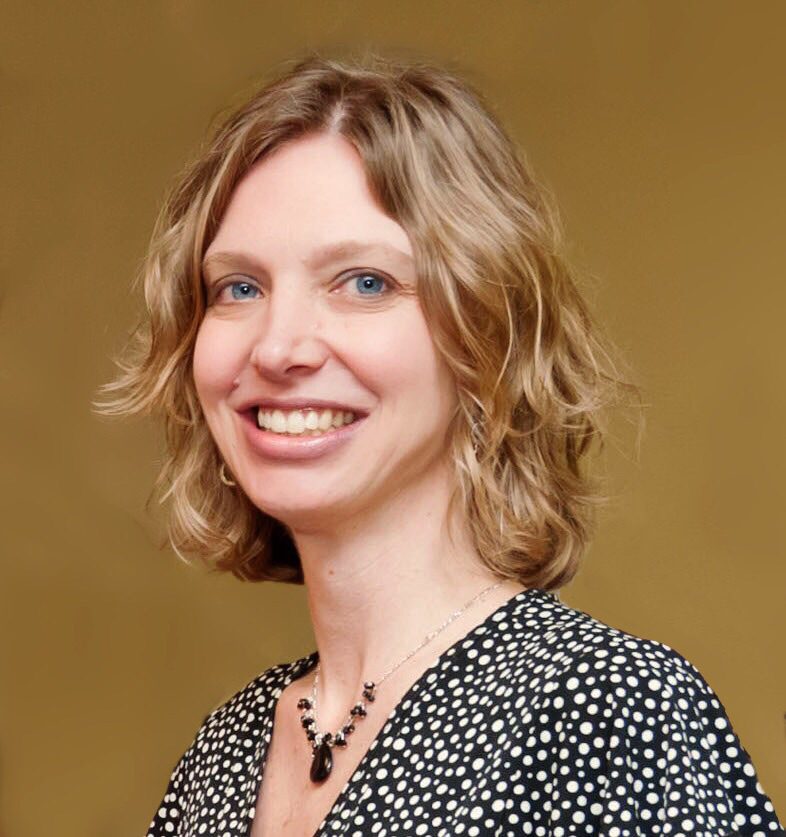June 2021|Vol. 41 No 4: Resilience and Rebuilding in the COVID-19 Era: Stories From the Field 2021
Editor’s Note: Kerrie Schnake co-authored the article, “Be Well Care Well: Taking Care of the Caregivers,” available in the online Journal Supplement. She is a member of the 2018–2020 ZERO TO THREE Fellowship class and one of two early childhood mental health professionals to be the first recipients of ZERO TO THREE’S Emerging Leadership Awards last fall! Clearly, Kerrie was someone we thought you might want to get to know better! You can read her professional bio here, but Kerrie also graciously answered a few reflective questions for us.
1. What were the experiences and/or who were the people that most influenced your career path?
Since I was a child, I’ve known I wanted to work with babies. Before and after elementary school, I spent my days at Playtime Learning Center in Yorktown, VA, where Ms. Benson, the center’s director, allowed me to help in the baby room. For this work she paid me 25 cents a day, and I couldn’t have been happier. I was enthralled with watching babies make discoveries about their world. That appreciation evolved over the years and eventually led me to take an internship position during my undergraduate program at the WestEd Program for Infant/Toddler Care in Sausalito, CA, where I met my mentor, Ron Lally, who was also one of the founding members of ZERO TO THREE. Ron’s passion, kindness, humor, and compassionate curiosity provided a template that has influenced my professional growth and leadership style in a profound way.
2. What is the greatest challenge to infant and early childhood mental health (IECMH) professionals at this point in time? What motivates you or gives you hope to overcome that challenge?
In general, we Americans aren’t great about prioritizing prevention or focusing on the long game. That shows up in all sorts of ways, including our lack of investments and policies that promote IECMH. An overwhelming focus on the here-and-now and a desire for immediate results makes the pitch for attention on issues of IECMH and the earliest years of life an uphill battle. But it’s not an insurmountable hill and there are a lot of passionate and dedicated professionals across the country who work to share the evidence and make the case that investing in pregnant women, babies, and their families leads to cost savings in the future, a healthier society, and a more peaceful and productive citizenry.
I’m motivated to join this uphill battle because we can and must do better. I’m motivated to build and expand IECMH programs to counter the ugly racism that underpins our systems and suffocates people of color, to upend the gender inequities that devalue the work and worth of women, and to address a myriad of other social ills. When mental health and social–emotional well-being are prioritized for babies and their families during the earliest period of brain development, we set a groundwork that is far more likely to produce strong adults who are equipped for healthy relationships and to thrive and contribute to a peaceful and vibrant society
3. What message or advice would you like to share with those who aspire to be make a difference, and perhaps become emerging leader themselves, in the field of IECMH?
At the core of all effective change agents, there is a passionate drive to make things better. In our field, that can mean a wide array of things from providing a safe, nurturing environment for infants and toddlers in an early care and education program, where a child’s sense of self is bolstered by the dedicated teacher who provides sensitive, responsive care, to communicating with policymakers in a way that balances passion with practicalities.
Effective leadership, like so many things, is about relationships. A passionate commitment to support the prenatal to 3 period is a core ingredient needed to make a difference in the lives of young children and their families. Passion, and the research that backs it, shared in the context of productive relationships with partners across spheres of influence can lead to meaningful changes in the services and resources available to support IECMH. To cultivate productive relationships, respect for the circumstances of others is critical. As I learned during my participation in the ZERO TO THREE Fellowship, every system and every organization is exactly where it is meant to be because of decisions that were made along the way. Criticizing the current state of any institution or system is shortsighted and counterproductive. We all may be frustrated, for example, with the way our child welfare system has historically penalized and punished families rather than embracing and supporting them, but change will come from cultivating collaborative relationships with professionals at all rungs of the ladder, and then, rather than pointing out deficits, working together to explore alternative ways of doing things. Presenting compelling stories of real families and children, along with data, and strategies for changing interactions and systems, will lead to more sustainable change. Our child serving systems and values have long histories and deep roots, making large-scale change challenging and time consuming. But babies can’t wait! We need impatient optimists leading the charge for positive change now!




